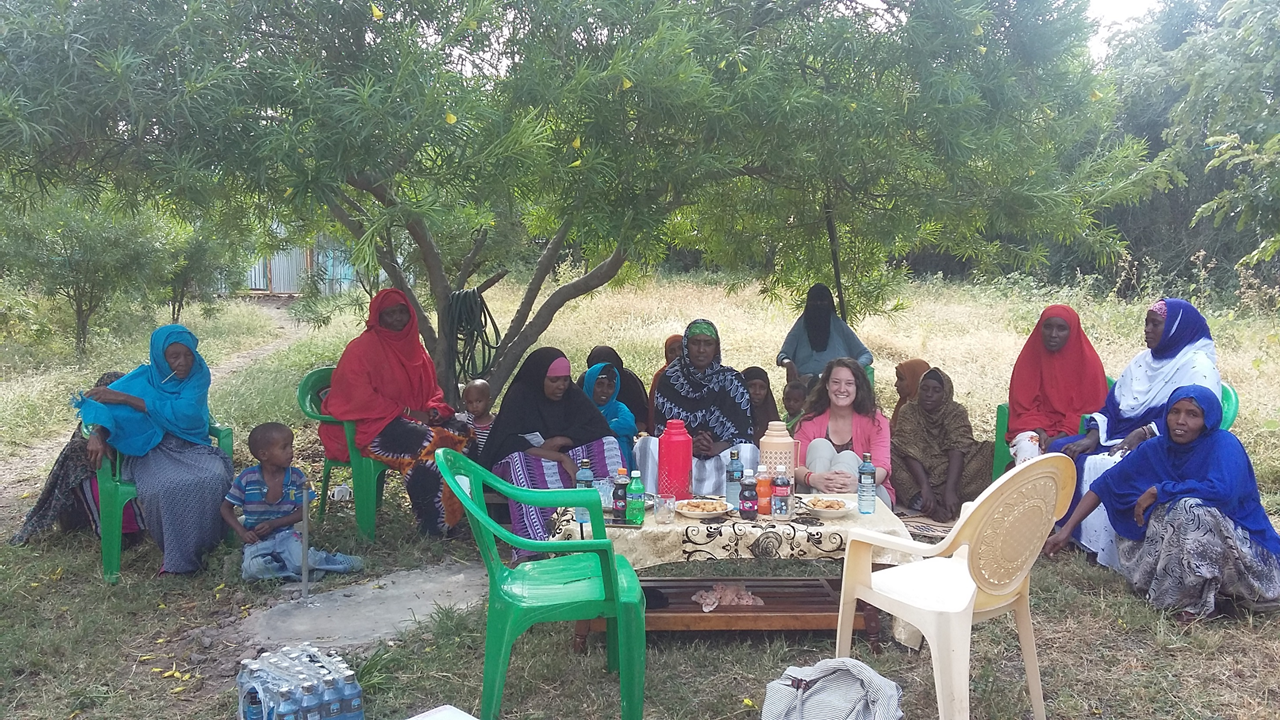By: Sarah Connor
Last month I had the opportunity to travel to Kenya for my Public Health Nursing Leadership, Management, and Evaluation Capstone practicum. My purpose was to create an evaluation plan for the wellness initiatives of Global Hope Network International’s program. I found this organization at a medical missions conference in November. They were one booth among hundreds, but their strategy, “transformational community development,” was exactly what I envisioned development in areas of poverty should look like. They work in villages of severe poverty across Africa, Asia, and the Middle East, partner with a village for 5 years, and empower the people to make sustainable transformation by teaching them to manage food, water, education, finance, and wellness. I started this program evaluation project with high hopes and even higher expectations.
However, the program planning and evaluation tools I learned about in class contrasted with the culture I entered in rural Kenya. Time was flexible and so were commitments. They barely had access to clean water, so using technology was out of the question. When people hardly knew how to feed their kids this week, planning for the next five years seemed impossible.
My assignment was to construct a logic model, create a monthly report, and create a yearly assessment template. But I realized I needed to adjust my strategy when I tried to gather information. When I asked someone a question, they responded with what they thought I wanted to hear. Instead of formal, structured key informant interviews, I started to casually insert my questions into conversation with villagers and staff members. As soon as I got home I wrote down everything I remembered from the conversation. My interviews were so honest and real. As I allowed the person to talk and their thoughts to travel, I heard stories of challenges and victories. I even heard stories that made me rethink my decision to stay for 6 weeks because the white foreigners cause more problems even though they have good intentions.
I completed my assignment, but what I really learned was how to integrate the tools into the messy, challenging program on the ground. I learned about the countless problems that programs face that higher-ups often don’t think about when making plans. And I loved it. Getting my hands dirty, seeing how things really work, experiencing delays in plans, running into roadblocks at every turn, and then restructuring the program to better serve the staff and the target audience. This experience has given me some sense of direction for the unknown future I face after graduation in December.
MSN/MPH Public Health Nursing Joint Degree

Sarah Connor, RN, BSN, is an MSN/MPH student who will graduate in December 2018. She earned her BSN in 2011, spent a few years at the bedside, and then taught nursing in Egypt for a year; she discovered her passions for culture, education and public health nursing along the way. Upon graduation, Sarah hopes to continue working with program evaluation in low and middle income countries.
